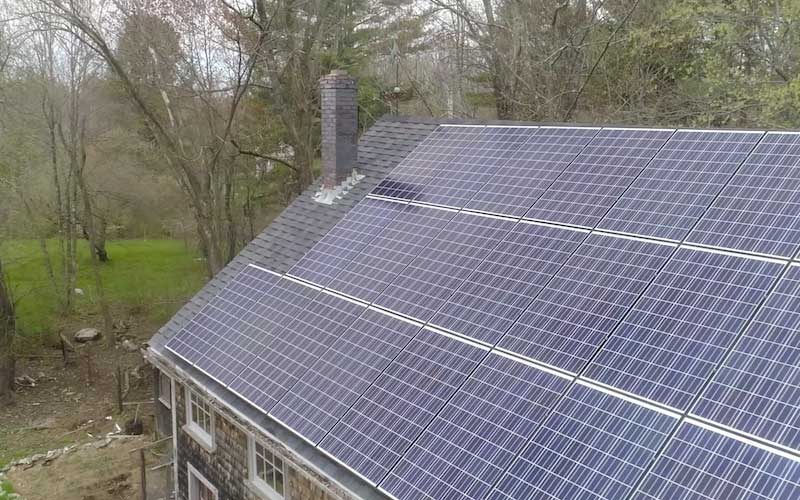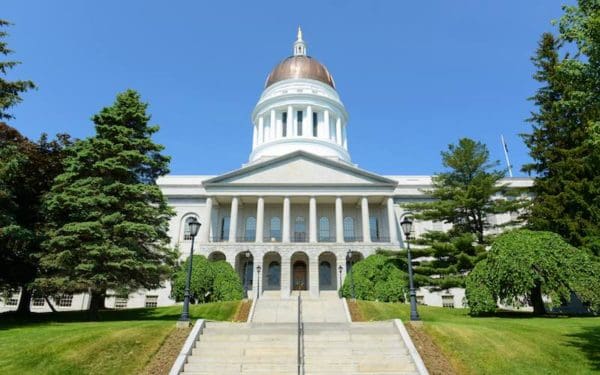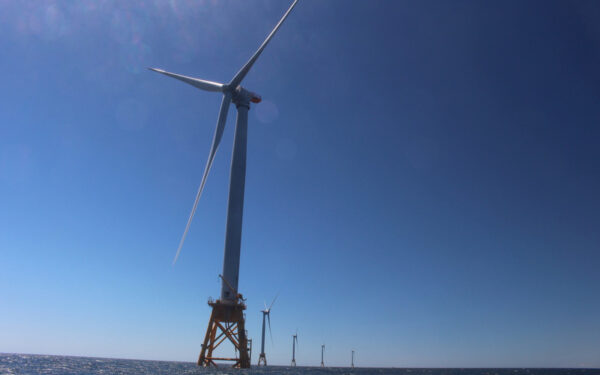
Maine's legislative session ended with a slew of new laws that make progress on climate, solar energy, lead poisoning, plastic pollution, and more. Photo: EcoPhotography
Let’s hear it for the state of Maine! After eight years of stagnation and outright animosity on environmental and energy issues, Mainers sent a strong message last November, electing a new governor and legislators who promised to protect natural resources, combat the climate crisis, and invest in renewable energy. And in their first legislative session, both Governor Mills and the legislature delivered, proving yet again the power of the people to make real change at the voting booth.
This year’s successes include critical new laws that will cut climate-damaging emissions, protect Maine’s families and children from toxic chemicals, and save energy – all while creating jobs, growing new industries, and strengthening the economy.
None of this could have been achieved without you. You showed up and spoke up, making your voices heard in the voting booth and holding our newly elected officials accountable to the promises they made on the campaign trail. And you continued to support the work of CLF’s advocates who were in Augusta to make sure that Maine would once more live up to its motto – Dirigo!
There’s still more to do, but here is just a sampling of what we’ve already accomplished together in Maine this year.
Tackling the Climate Crisis Head On
Leading scientists agree: We must drastically cut carbon pollution by 2050. As the Trump administration ignores this epic catastrophe, CLF is helping local leaders step up. We’re pushing for strong, enforceable climate laws in every New England state to curtail climate-damaging emissions. That’s why CLF is proud of the role we played in developing and securing the passage of L.D. 1679, An Act to Promote Clean Energy Jobs and to Establish the Maine Climate Council.
This new law requires the state to cut emissions 80% by 2050, with an interim 45% cut by 2030. Having a long-term roadmap with enforceable emissions targets is critical to stimulating economic growth and development while we transition Maine off of climate-damaging fossil fuels. This law will help promote clean energy solutions and clean up our transportation and heating sectors, protect our environment, and bring jobs to New England.
Growing Maine’s Clean Energy Economy
The governor and legislature signaled that this would be a session to remember early on by restoring net metering, a proven policy that makes investing in solar energy financially viable for more Mainers. But that was just the start.
After many years of foiled attempts, Maine’s legislature successfully enacted a comprehensive solar law that will attract investment and create jobs in the state by expanding access and opportunities for Mainers to get a share of clean power. The new law will also help cities and towns to invest in solar projects of their own.
The Legislature also enacted a robust renewable energy bill. It will clean up our electricity grid and lead to investment in grid-scale renewables to complement rooftop and community solar development. The law ensures that Maine’s energy will be 100% renewable by 2050 and 80% by 2030.
Electrifying Vehicles and Heaters
Across the country, transportation is the largest contributor of harmful carbon emissions – and in Maine, it’s responsible for more than 50%, with most of those coming from our cars and trucks. That’s why it’s critical that Maine change the way we move people and goods – including (but not limited to) a wholesale move to electric vehicles.
A robust rebate program for the purchase or lease of a new electric vehicle is a proven way to ensure that more of these green cars and trucks hit the road – and that’s just what the Legislature created with L.D. 614. The program is already in development – stay tuned!
But it will take planning, study, and some experimentation to make sure that we transition away from gasoline as efficiently as possible. And that’s where L.D. 1464 comes in. This new law requires the state to take critical first steps: taking a hard look at how to electrify not just vehicles but also home heating (another significant source of climate pollution) and investing in a pilot project to figure out smart ways to start electrifying transportation more widely.
Meanwhile, yet another critical new law sets a statewide goal of installing 100,000 high-performance heat pumps over the next five years. These not only reduce carbon pollution but also will save individual home- or business owners money and can help reduce electric rates for all of us.
Progress Toward a Plastic-free New England
Plastic bags harm our environment from their production by the petroleum industry to their disposal in landfills or along our roads, beaches, or parks. That’s why CLF has launched a campaign to ban single-use plastic bags in all six New England states. Banning single-use bags will mean less pollution, cleaner coastlines, and healthier communities for all.
Our efforts paid off in Maine this year. The state now has a law on the books – L.D. 1532 – that will ban single-use carryout bags in retail stores starting in 2020.
Protecting our Children from Lead Poisoning
Childhood lead poisoning is a public health crisis. Even low levels of exposure to lead can cause a lifetime of problems due to brain damage. Families in Maine are at particular risk because nearly 60% of our houses and apartments were built before lead paint was banned in 1978. Yet we do not know the true scale of this health crisis because not all children are currently tested for poisoning.
Two new laws, if adequately funded, will be a significant step in the right direction. They will require testing of all children so that we can identify problem homes and prevent further poisoning. And they would require that all schools using public drinking water test it for lead. These measures are critical for safeguarding the health of our children. CLF will continue to fight to ensure full funding of these vital programs.
Wasting Less Energy
Energy efficiency means getting smarter about how we meet our energy demands. Even though efficiency is a win-win for residents and businesses, Maine has a history of underfunding it. That means we’re all paying to use more energy than we should have to – and emitting more pollution that worsens the climate crisis. A law passed this year, L.D. 1757, should change that by making sure that Maine calculates the benefits of energy efficiency similar to our neighboring states. This should have an immediate positive impact on energy efficiency funding levels.
Getting Toxic Chemicals Out of Our Food
Toxic chemicals known as PFAs and phthalates pose devastating health risks, particularly for pregnant women and children, yet they are widely used in everyday household products, as well as in food processing and packaging. And because of that, they’ve already contaminated water sources in Maine and entered our food supply. We were encouraged earlier this year when Governor Mills established a PFAS Task Force to study the risks of these toxic chemicals to Maine families and our environment and recommend ways to address them most effectively. But that’s not all – the legislature also passed a bill that will phase out the addition of PFAS and phthalates in packaging, to get these dangerous chemicals out of our food for good.
Your Voice Matters
The successes we’ve had in Maine over the last six months show what people can achieve when they stay engaged. This all happened because YOU showed up to vote, paid attention throughout the legislative session, held your lawmakers accountable, and continued to support CLF. We will continue to let you know about opportunities for getting involved in the future, so be sure you’re signed up for email updates from us.
And now… the work of putting all of these laws into action begins!




